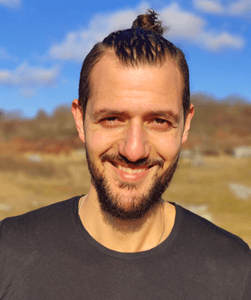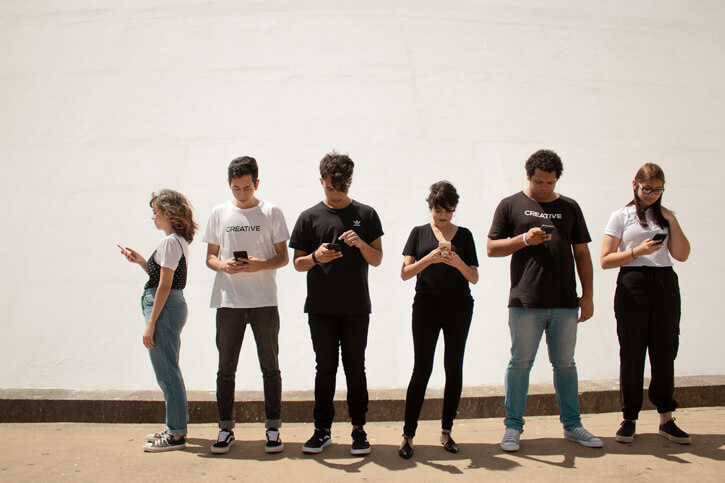In two groundbreaking moves over the past couple months, New York City Mayor Eric Adams has not only officially classified social media as a “public health hazard” and an “environmental toxin,” but also filed a lawsuit against TikTok, Instagram, Facebook, Snapchat and YouTube.
The first announcement, from end of January 2024…
Marks a significant step forward in recognizing the potential risks associated with excessive social media use. It is a move that hopefully creates ripples not only in the US, but also internationally, as more and more authorities around the world take a clear stance in this matter.
Mayor Adams draws parallels to historic actions taken against tobacco and guns, and is leading the charge to ensure that tech companies take responsibility for the impact of their platforms on users. Citing data that indicates a decline in the mental health of young New Yorkers over the past decade, the mayor has taken a clear stance against popular social media platforms accusing them of contributing to a mental health crisis through addictive features.
Is this just a personal opinion by Mayor Adams then? Not at all. It’s important to note that this move aligns with the advisory issued by Surgeon General Vivek Murthy in May 2023, where he highlighted the potential “profound risk” to youth mental health associated with excessive social media use. The advisory acknowledged the dual nature of social media, recognizing both positive and negative effects. While some adolescents reported feeling more accepted through social media, Murthy emphasized the lack of conclusive evidence on its overall safety for young users.
Mayor Adams sends a strong message that the well-being of the city’s youth is a top priority. However, it’s crucial to strike a balance between addressing potential hazards and recognizing the positive aspects of social media. Pew Research indicates that 59% of adolescents feel more accepted through these platforms, highlighting the importance of a nuanced perspective.
While very strong, the declaration aligns with international trends as more and more countries are issuing recommendations about restricting social media use and screen time among kids and adolescents.
The lawsuit, filed mid-February 2024…
Is the first of its kind amongst major American cities and claims that the social media platforms’ exploitation of young users’ mental health costs the city $100 million per year in related health programs.
Mayor Adams expressed a worry not only about young users’ mental health, but the effects that ubiquitous connectivity has on their overall lives.
What can you do?
Finding the balance between the positive effects of social media and the potential harm, here are some tips for handling social media responsibly:
1. Open Communication
As an adult, avoid judging your kids´ behavor. Encourage open conversations about online experiences, both the good and the bad, ensuring that young individuals feel comfortable discussing any challenges or concerns they may face. If you share some of your own experiences it may be easier to open up. Include other families and the school too.
2. Follow Age Guidelines
Many parents are unaware of the existing age limit of 13+ for most social media platfowms.
3. Set Limits and Teach Balance
Encourage young users to establish daily screen time limits and take breaks from social media to promote a healthy balance. It is important to replace social media use with other positive activities. Think about what they get by freeing up the social media time instead of looking at it as only giving up social media.
4. Utilize Digital Well-Being Features
Make use of built-in features on platforms such as bedtime reminders and age restrictions to enhance the overall digital experience.
5. Encourage Positive Engagement
Discuss and highlight the positive aspects of social media, such as connecting with friends, exploring creative outlets, and staying informed about diverse perspectives. Consider passive usage (mindless scrolling) vs. active usage.
My hope it that Mayor Adams’ declaration will spark a conversation and have a positive impact on both youth and adult mental health.
For more tips on responsible tech use and similar topics, check out my book Tech-Life Balance: 101 Ways to Thrive in a Digital World.

Taíno Bendz is the founder of Phone Free Day and his own consulting business, and his message on mindful and intentional technology usage has reached and inspired hundreds of thousands of people around the world. He is a public speaker, workshop facilitator, and conducts research on digital technology usage. Taíno holds a Master’s Degree in Industrial Engineering and Management and has spent the last 10 years working in technology sectors such as renewable energy, healthcare IT, and software automation. He currently lives in Sweden with his family. He is the author of Tech-Life Balance.



